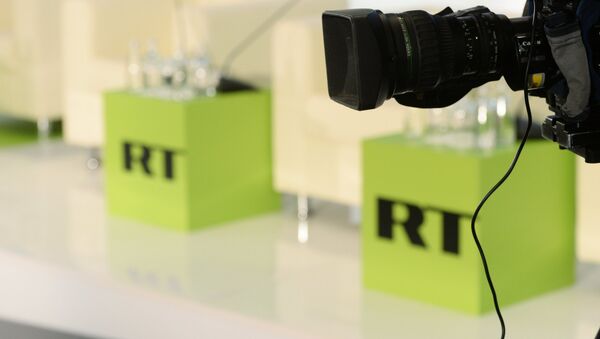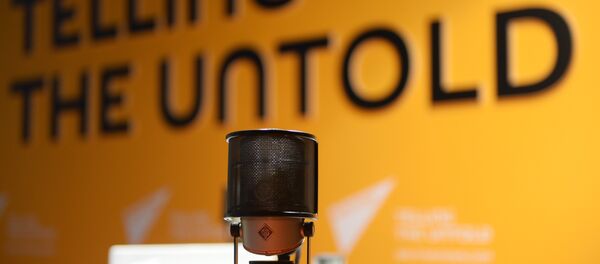The leaders of France and the United Kingdom met on Tuesday in Paris. Ruptly video producer Ugo Passuello showed a valid French press card, which had the name of the agency on it, but he was told by the police that he did not have accreditation and was not let in.
"One detail confused me. I asked if my name was in the list. He [the policeman] did not check the list, but when reporters of other media were entering the palace, the police looked for their names in the list of all the accredited media. He did not even bother to look for my name, because, I think, he read ‘Ruptly’ on my press card, and he was probably given certain instructions about it [the agency]," Passuello said.
He added that the policeman that first saw the press card "frowned" and called for his colleague.
"He asked me to repeat what media I am working for, as I did," Passuello said.
The reporter stressed that Ruptly only broadcasts "raw material without any comments."
Editor-in-chief of the RT broadcaster and Sputnik news agency Margarita Simonyan commented on the incident on Wednesday, saying that this is the answer on how President Macron would organize his relationship with foreign journalists.
During his joint press conference with Russian President Vladimir Putin in May, Macron said that RT and Sputnik had been spreading lies about him personally and his campaign during the recent presidential campaign. Simonyan has stressed that not a single example of spreading misinformation by the Russian media was ever provided by Macron's team.
RT reporters were denied entry to the headquarters of then-French presidential candidate Macron twice in April, and on May 7, a Sputnik reporter was not allowed to enter the square in front of Paris' Louvre museum where Macron and his supporters were celebrating the victory in the presidential run-off.



